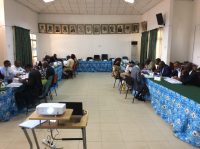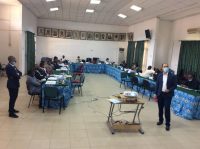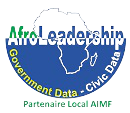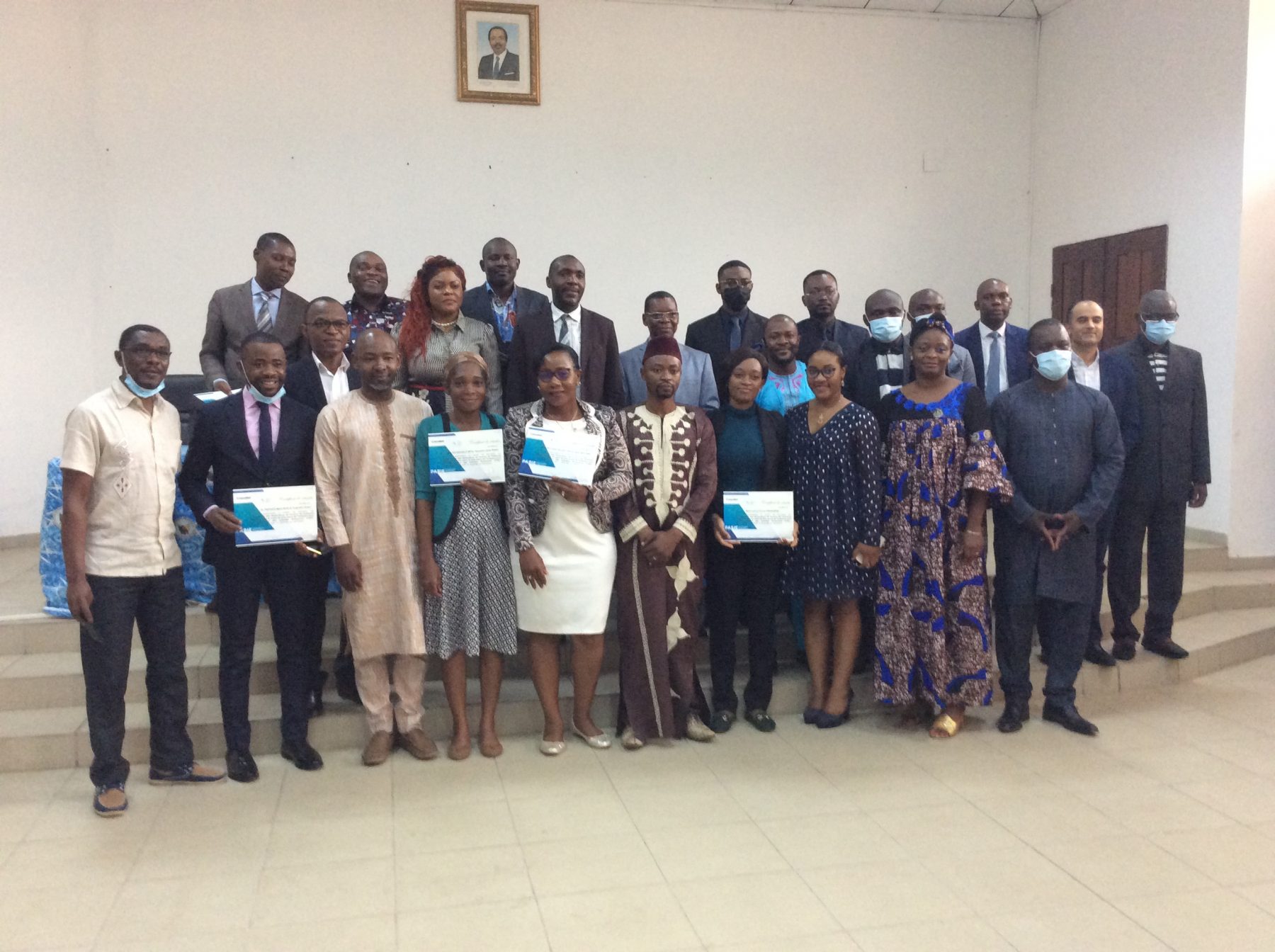Report of the Training Workshop on the Attestation of Income Statements from the Extractive Industry as part of the EITI Process
Introduction
From February 15 to 19, 2021 was held in the meeting room of Building D of CONSUPE (Higher State Control), the training workshop on the certification of declarations of income from the extractive industry in the framework of the EITI process.
This training was intended for participants with the following profiles: (Members of the Supreme State Control, Members of the Chamber of Accounts and some civil society organizations (AfroLeadership, DMJ, FODER, PWPFP).
Reminder of the Context of the Training Workshop
The present training workshop which is open to Magistrates and Auditors of the Court of Auditors in Burkina Faso aims to equip them with the methodology and audit techniques applicable to the attestation missions of income statements from industries. extractives as part of the EITI process.
It follows a request formulated by the SAIs and the Permanent Secretariats of the EITI in the target countries of the PASIE project on the need to strengthen the capacities of the SAIs members of CREFIAF in certifying the declarations of income from the extractive industries made by them. relevant public administrations, in application of EITI requirements for EI revenue collection.
The PASIE project, in response to this request, proceeded to the development in years 4 and 5 of an audit guide on the subject, as well as a training material on the methodology of attestation of income tax returns. ‘EI as part of the EITI process.
The Guide as well as the training material developed constitute working tools which aim to systematize and codify the certification process for extractive industries income declarations made by public administrations and collecting organizations as part of the EITI process.
This training thus contributes to the materialization of PASIE and CREFIAF’s desire to ensure a large-scale dissemination of this approach in order to guarantee its appropriation and application by the auditors of SAIs and all other stakeholders in the monitoring of the extractive sector in French-speaking sub-Saharan Africa.
Global Objective of the Workshop
Provide the Auditors of CONSUPE, the Chamber of Accounts and stakeholders in the monitoring of the extractive industry in Cameroon with the tools and methodology necessary to carry out certification missions for income tax returns from the extractive industries within the framework of the EITI process.
Workshop Content
According to the schedule provided, the Training Workshop will cover the following sessions:
Session 1. Introduction to the certification of EI income declarations as part of the EITI process
Objective: At the end of this session, participants will master the operation of the EITI, as well as the role of SAIs in certifying EI tax returns. They will also have a good knowledge of the financial flows affected by the EITI.
Session 2. General considerations on an extractive industries income declaration certification mission as part of the ITIE process
Objective: At the end of this session, the participants will have understood what it is to certify the declarations of income from the extractive industries within the framework of the EITI process, its objectives as well as the reference standards that underpin it. They will also be equipped with the risk analysis methodology applied to this type of assignment, as well as the procedures for determining the materiality threshold in this area.
Session 3. Prerequisites for planning IE income certification under the EITI
Objective: At the end of this session, participants will have mastered the prerequisites for planning an attestation mission and acquire the tools for their implementation. Specifically, they will have to:
- Understand the importance of these prerequisites for the success of an attestation engagement;
- Acquire the tools to effectively accomplish these prerequisites.
Session 4. Planning a certification mission
Objective: At the end of this session, participants should be able to understand the planning of an attestation engagement and the preparation of a detailed audit plan for the conduct and achievement of the engagement objectives.
Session 5. Carrying out a certification mission
Objective: By the end of this session, participants should be able to perform attestation procedures, gather evidence and document findings.
Session 6. Writing of the attestation report
Objective: At the end of this session, participants should be able to write a written report outlining the opinion of the SAI and any findings in an appropriate manner,
Team of Trainers for this Workshop
The training workshop was led by the group of PASIE and CREFIAF Experts who developed the Guide on the attestation of declarations of income from extractive industries under the ITIE process, as well as the related training material. It is :
- Mr. Karim LOURIMI, International Consultant / Chartered Accountant;
- Mr. ASINA IGNACE, State Controller in the Higher State Control Services of Cameroon;
- Mr. ENGALA Casimir, Assistant Auditor in the Superior Control Services of the State of Cameroon;
- Mr. Michel BISSOU, Responsible for the database of the Permanent Secretariat of the Cameroon EITI Committee.
This group of trainers was assisted by Professor NDOUGSA MBARGA Théophile, Expert in extractive industries at PASIE.
Conduct of The Training Workshop
Monday, 02/15/2021: 10.30am-12.30pm and 1.30pm-3pm
SESSION 1. Introduction to the certification of EI income declarations as part of the EITI process
Learning Objective: By the end of this session, participants will have mastered the functioning of the EITI, the role of SAIs in the attestation of declarations of extractive industries income within the framework of the EITI process, and the flows concerned by the EITI process.
During this session, participants learned about aspects relating to: Extractive Industries Transparency Initiative (EITI), Understanding the EITI, the structure for implementing the EITI at the national level, EITI Standard, the role of stakeholders in the implementation of the EITI Standard, the role of the SAI and the IA in the certification process of EITI data, the level of intervention of the SAI and the IA in the process of production of the EITI report. The complementarities of the roles of the SAI and the IA in the attestation of EITI data, the challenges and importance of the attestation of EITI data by the SAI, the challenges and difficulties encountered in the attestation of data EITI and practical cases.
Monday, 02/15/2021: 3.15 p.m. – 4 p.m.
Tuesday, 9 a.m. to 10 a.m., 10:30 a.m. to 12:30 p.m., 1:30 p.m. to 3 p.m.
SESSION 2. General considerations on an extractive industries income statement attestation assignment under the EITI process
Learning objective: At the end of this session, the participants will have to master the generalities linked to a mission of attestation of declarations of income from the extractive industries (the objective of an attestation mission, the risk-based approach, the standards of references for certification missions as well as the determination of materiality).
During this session, the participants learned about related aspects such as: the definition of an EITI attestation mission, the comparative analysis “Reasonable assurance” and “Limited assurance”, the objective of an attestation mission, example of the objectives of an EITI attestation mission, the risk-based approach, the importance of tackling a risk-based approach: Risk assessment, types of risks, reference standards for EITI attestation engagements, ISSAIs, professional judgment on materiality (materiality), determination of materiality, guidance note for determining materiality based on quantitative factors and practical cases.
Tuesday, 10:30 am-12:30pm, 1:30 pm-3pm
SESSION 3. The prerequisites for planning the IE income certificate
Learning Objective: The objective of this session was to equip participants to meet the prerequisites for planning an IE attestation engagement.
Specifically, it will allow them to:
- Understand the importance of the planning prerequisites in the EITI attestation process;
- Identify and implement the prerequisites for planning an EI income attestation mission.
During this session the participants learned about the relative aspects such as:
The importance of the planning prerequisites in the attestation process, the implementation of the attestation engagement planning prerequisites and practical cases.
Tuesday, 3:15 p.m. – 4 p.m.
Wednesday, 9 a.m. to 10 a.m., 10:30 a.m. to 12:30 p.m., 1:30 p.m. to 3 p.m.
SESSION 4. Planning a certification mission
Learning Objective: By the end of this session, participants should be able to plan an attestation engagement and prepare a detailed audit plan for the conduct and achievement of engagement objectives.
During this session the participants learned about relative aspects such as: the planning process and practical cases.
The planning phase which goes through 4 main stages:
- Knowledge and collection of data;
- Risk Assessment ;
- Determination of audit criteria and materiality;
- Attestation audit strategy and plan.
Thursday, 9-10 a.m., 10.30 a.m.-12.30 p.m., 1.30 p.m.-3 p.m.
SESSION 5. Realization of a certification mission
Learning Objective: By the end of this session, participants should be able to perform attestation procedures, gather evidence and document findings.
During this session, the participants learned about the relative aspects such as: The process of carrying out the mission, the practical cases and the methods of collecting evidence consisting of:
- The documentary review;
- the interview;
- inspection;
- investigation ;
- external confirmation;
- repetition of checks;
- the recalculation.
Thursday, 3.15 p.m. – 4 p.m.
Friday, 9-10 a.m.
SESSION 6. Drafting of the certification report of the EI tax returns under the EITI
Learning Objective: By the end of this session, participants should be able to write an EI tax returns under the EITI Certification Report that meets standards.
During this session, the participants learned about the relative aspects such as: the introduction to the drafting of the attestation report: Presentation of the 05 principles for establishing attestation engagement reports, the format and structure of the attestation report. attestation of EI tax returns under the EITI the types of attestation opinion and how to present them in the attestation report ?, How is quality control, validation and communication carried out of the attestation report ?, The conclusion is expressed in the form of an opinion, When formulating the opinion, the SAI Audit Team takes into account the level of assurance provided.
CONCLUSION
The training workshop ended with the submission of end-of-training certificate
Some pictures of the training workshop:




